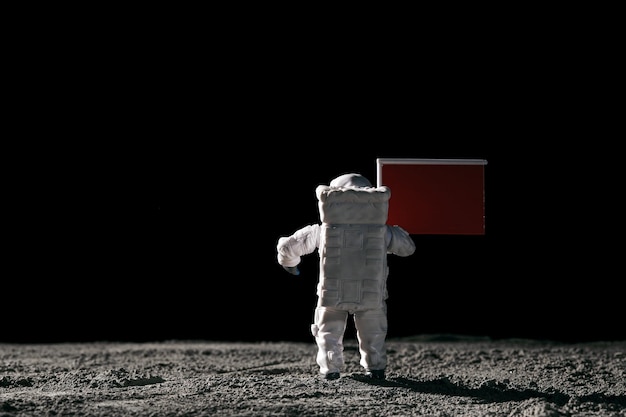Discover Fascinating Facts about Neil Armstrong

Neil Armstrong was the first person to set foot on the moon.
Armstrong’s famous words upon stepping onto the moon were, That’s one small step for man, one giant leap for mankind.
Armstrong was born on August 5, 1930, in Wapakoneta, Ohio.
After his historic moon landing, Armstrong became a global icon and inspiration for generations to come.
Before becoming an astronaut, Armstrong served as a naval aviator during the Korean War.
Armstrong had a Bachelor of Science degree in aeronautical engineering from Purdue University.
Neil Armstrong’s iconic spacesuit is on display at the National Air and Space Museum in Washington, D.C.
Armstrong received numerous awards, including the Presidential Medal of Freedom, the highest civilian award in the United States.
Prior to his moon mission, Armstrong also flew on two previous NASA missions: Gemini 8 and Gemini
Armstrong’s moon landing was watched by an estimated 530 million people worldwide.
Armstrong took a small piece of the Wright brothers’ first airplane, the Flyer, with him to the moon.
After retiring from NASA, Armstrong taught aerospace engineering at the University of Cincinnati from 1971 to 1979.
Armstrong was a private and humble person, often avoiding the media spotlight.
Armstrong’s family held a private burial at sea for him after his death in 20
Neil Armstrong’s spacesuit had 21 layers of fabric, providing protection from extreme temperatures and micrometeoroids.
Discover Fascinating Facts about Neil Armstrong part 2
In 1962, Armstrong became one of the nine astronauts chosen for NASA’s second group.
Armstrong was awarded the Congressional Space Medal of Honor, the highest award for space exploration in the United States.
Armstrong’s lunar footprint is still visible on the moon’s surface, as there is no wind or weather to erode it.
Neil Armstrong’s name is often synonymous with exploration, bravery, and pushing the boundaries of human achievement.
Armstrong was part of the Apollo 11 mission, which launched on July 16, 1969.
Neil Armstrong was the first civilian astronaut to fly into space.
Armstrong was an advocate for continued space exploration, urging governments and organizations to invest in space travel.
Neil Armstrong’s legacy continues to inspire aspiring astronauts and scientists worldwide.
Armstrong’s lunar module, called the Eagle, spent a total of 21 hours and 36 minutes on the moon’s surface.
Neil Armstrong’s footprint on the moon measured about 9.5 inches long.
Armstrong considered the moon landing to be a team effort, always crediting his fellow astronauts and NASA colleagues.
Neil Armstrong’s love for flying started at a young age, as he had his pilot’s license before he got his driver’s license.
Armstrong was chosen to be the commander of Apollo 11 due to his calm demeanor and exceptional piloting skills.
Neil Armstrong’s historic moonwalk lasted approximately 2 hours and 31 minutes.
Armstrong’s spacesuit weighed about 180 pounds on Earth but only 31 pounds on the moon.
Neil Armstrong received the NASA Distinguished Service Medal for his contributions to space exploration.
Armstrong’s historic moon landing was watched live by millions of people around the world.
Neil Armstrong’s first words upon landing on the moon were, Houston, Tranquility Base here. The Eagle has landed.
Armstrong’s iconic photograph of Buzz Aldrin standing on the moon was taken by him.
Neil Armstrong later served as the Deputy Associate Administrator for Aeronautics at NASA Headquarters.
Armstrong’s moonwalk was not originally planned but was a spontaneous decision during the mission.
Neil Armstrong was selected to be an astronaut in 1962, after being an engineer and test pilot.
Armstrong’s mission to the moon was a significant moment in the Space Race between the United States and the Soviet Union.
Neil Armstrong’s lunar module, the Eagle, weighed about 33,500 pounds.
Armstrong’s spacesuit was made by the International Latex Corporation, which also produced Playtex bras.
Neil Armstrong’s mission helped pave the way for future space exploration and scientific advancements.
Armstrong’s heart rate during the moonwalk was reported to be around 150 beats per minute, indicating his excitement and adrenaline.
Neil Armstrong’s moon landing marked a milestone in human history and showcased the power of human ingenuity and perseverance.
Armstrong’s moonwalk was live broadcasted on TV, allowing people around the world to witness this historic event in real-time.
Neil Armstrong’s courage and determination will forever be remembered as he took humanity’s first steps into the realm of outer space.

